Introduction
When it comes to business succession planning, choosing the right strategy is crucial for the future of the company and its stakeholders. Among the options, Employee Stock Ownership Plans (ESOPs) stand out for certain unique advantages. However, it’s important to compare ESOPs with other common succession methods to make an informed decision.
Overview of ESOPs in Succession Planning
ESOPs offer a way for business owners to transfer ownership to employees. This approach can ensure business continuity, preserve company culture, and provide tax advantages. Unlike other succession methods, ESOPs create a legacy of employee ownership and involvement.
Selling the Business Outright
A straightforward option is selling the business to an external buyer. This route often results in immediate liquidity for the owner but can lead to significant changes in company direction and culture. Compared to ESOPs, outright sales offer less control over the company’s future and may not prioritize employee interests.
Mergers and Acquisitions (M&As)
M&As involve merging with or being acquired by another company. This strategy can provide access to new markets and resources but may result in loss of independence and potential cultural clashes. Unlike ESOPs, M&As don’t necessarily focus on employee ownership or participation.
Other Succession Options
Other options include family succession or even liquidation. These choices depend on factors like the presence of a capable heir or the business’s viability. ESOPs, in contrast, can be a viable option when these traditional routes are not suitable or desired.
Factors to Consider in Choosing a Succession Plan
Key considerations include:
- Company Size and Financial Health: Larger, financially stable companies may find ESOPs more feasible.
- Owner’s Goals: Whether the owner values legacy, employee welfare, or immediate financial return.
- Company Culture: ESOPs may be more fitting for companies with a strong culture of employee engagement and collaboration.
Conclusion
Comparing ESOPs with other business succession options reveals a range of trade-offs. While ESOPs offer unique benefits like preserving company culture and rewarding employees, other methods might be more suitable for immediate financial returns or in scenarios where employee ownership isn’t a priority. Business owners should weigh these options against their objectives and the company’s characteristics to choose the best path forward.

